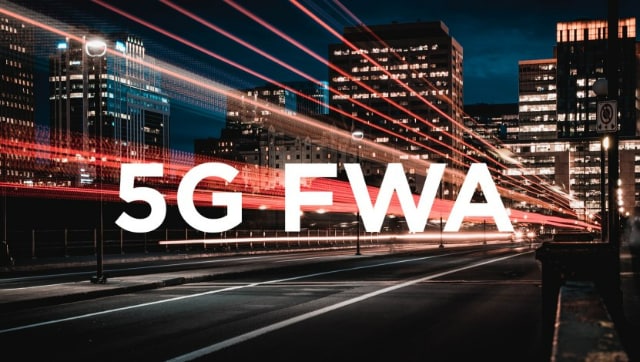FP TrendingNov 11, 2022 12:14:18 IST
The introduction of 5G has made it possible for mobile technology to finally fulfill the requirements of fixed-line services and costs. Rolling out high-speed data services has been made more difficult by the cost and complexity of supplying fixed broadband. While technologies like WiMAX have attempted to avoid the local loop or stop the fiber trench, these initiatives have largely failed, mainly because they required a whole new overlay infrastructure and costly proprietary gear. When fiber is excessively expensive to build and maintain, Fixed Wireless Access (FWA) enables network operators to provide ultra-high-speed internet to suburban and rural areas, serving both residential and commercial applications.
To deliver ultra-high-speed broadband services to residential subscribers and business clients, 5G Fixed Wireless Access (FWA) uses standardized 3GPP designs and common mobile components.
In all markets, fixed-line DSL, cable, and fiber can be effectively replaced by 5G FWA with New Radio (NR) in the millimeter wavelength (mmWave). In order to support high-definition streaming services and high-speed Internet connection, this enables consumers in suburban and rural areas to obtain the bandwidth requirements.
Advantages of 5G FWA:
This alternative to wired internet can be swiftly and affordably delivered through access to the lower bands of the wireless spectrum. A level of service bandwidth capacity comparable to fiber optics can be provided by 5G FWA in the millimeter wavelength range. These tiny beams also allow for larger user density without creating interference. Customer Premise Equipment (CPE) with antennas outside the home or office can significantly reduce signal degradation even though mmWave penetration through typical building materials, including newer types of glass, is limited. In contrast to wired local loops, these subscribers from companies or households can still easily install them without any assistance.
FWA may be used to enable SD-WAN traffic bursting and backup in places where wired broadband connectivity is currently affordable and widespread. However, FWA accessibility can address a more basic issue in other areas. Jio has reported that just 1 million of India’s roughly 51 million smaller firms have access to wireline broadband connectivity. This drastically restricts both their own progress and India’s chances for economic expansion. In such a situation, 5G FWA can provide greater penetration of digital services for these firms.
Source by www.firstpost.com





























